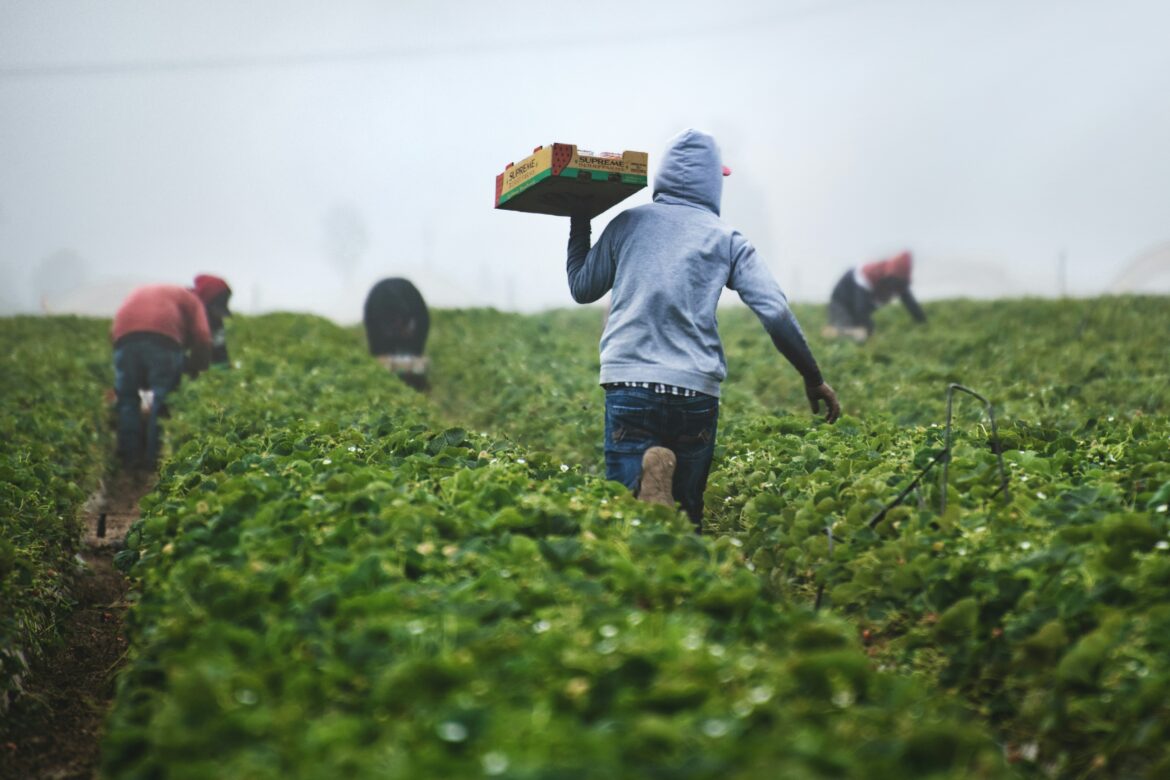By Richard Wright | The Lake Report
Niagara-on-the-Lake migrant worker Denver Cunningham likes the farm he works on, has a genuine level of respect for his employer and while here in Canada for eight months of the year he enjoys a well-maintained mobile trailer with internet access, full laundry services and the cool sensation of an air-conditioned home on a hot summer’s day.
His opinion of working in this country is a positive one and not reflective of a United Nations report that described the Temporary Foreign Worker program in Canada as a contemporary form of slavery.
When a reporter from The Lake Report dropped in on Cunningham and his housemates unannounced to seek their opinion on the report, they had quick responses when speaking about its main assertion — slavery.
“Our boss, Scotty, is a good boss,” said Cunningham, referring to Scott MacSween of MacSween Farms. ”He makes sure you are comfortable.”
His house and workmate Rohan Thompson agreed.
“My employer is not a bad employer,” he said.
“And the living conditions here are not bad. It is pretty good.”
Both men have worked for MacSween since 2019.
MacSween, who had nothing to do with arranging the interviews with his workers and was not present for the conversation, stated in a separate interview that he and other farmers in the region strongly disagree with the UN report’s conclusion.
“All the tender fruit growers around here, we are all very upset with that,” he said. “It is the furthest thing from the truth. All of our workers, ask any of them, they are all like family to us.”
What both Cunningham and Thompson, who are Jamaican nationals, don’t like is that despite their hard work and time spent here in Canada, they cannot obtain permanent residency status.
As migrant workers, they must leave their families behind while they work in Canada. Their work permits here only pertain to the individual who is being employed, so that excludes their families.
The Canadian government has hinted at awarding permanent residency to farmworkers, however, it has never gotten beyond the discussion stage. Advocates, like the Migrant Workers Alliance for Change, have been vocal about urging the government to act.
Being without his loved ones is just one of the social barriers to living as a migrant worker in Canada, but for Cunningham it is the biggest one.
“You will be more comfortable here because your family is here,” he said.
“You won’t have to be fretting about what, if anything, happened,” adding that one of his biggest sorrows while in this country working is not spending quality time with his kids or being able to return quickly if there’s an emergency.
To him, this seems completely unfair.
“It is difficult because I am not a part of their childhood,” he said. “I don’t know how my kids are being raised.”
And this is happening as he and his co-workers actively play a role in the healthy upbringing of Canadian children and families by planting, nurturing, picking and packing many of the fruits and vegetables that find their way to tables across this country.
That makes them essential workers, said Cunningham, deserving of the same rights as any other Canadian.
Another housemate, Jason Moodie, agrees that more should be done to help those who are here in this country providing for so many others.
He points out that while his health care benefits as a migrant worker are valuable and appreciated, he would like to take care of his sick daughter.
“My daughter has meningitis,” he said. “The medical care in Jamaica is no good. If she was able to come here, I think that she would get better health care.”
For the men of this household, the way of life of a farmworker is a double-edge sword.
“The farm work here impacts us in a good way and a bad way,” said Cunningham as he gathered around the kitchen table with his friends.
“When we are here, we have work. But when we go back to Jamaica it is hard for an employer there to employ us for just a few months.”
“We don’t get any (employment benefits) from Canada in any way. We pay EI when we are here and when we are in Jamaica, we don’t get anything. We have to be seeking around looking for a dead-end job and that throws us way off.”
Still, Cunningham enjoys his time here because it is paying the bills back home. He simply wishes he could start a forever life in this country with the people he loves most.
And if that meant foregoing one of the big demands from migrant worker advocates here in Canada, he would gladly do it.
“They think, probably, that if we get our permanent residency that we are not going to want to work on the farm,” he said, referring to a clause in the migrant worker program that binds employees to a single employer.
“So, what they should do then is sign a contract. We get our (permanent residency) and continue to work on the farm for five, six years. So you happy, we happy, everyone happy. The family is happy.”



